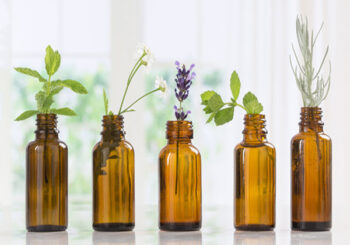Guest Writers for Wake Up World
Essential oils have been used for thousands of years for their health and healing properties. The ancient Egyptians were known to use essential oils for beauty, embalming, and religious purposes. The Greeks also used essential oils for their healing properties, and Hippocrates, the father of medicine, believed in their power to heal the body and mind. In fact, the word “aromatherapy” was coined in the 20th century to describe the therapeutic use of essential oils.
Essential oils are extracted from plants through a process of steam distillation or cold pressing. The resulting liquid contains the essence of the plant, including its fragrance and therapeutic properties. Essential oils can be used in a variety of ways, including inhalation, massage, and topical application.
One of the most popular uses of essential oils is for stress relief and relaxation. Essential oils like lavender and chamomile have a calming effect on the nervous system and can help alleviate feelings of anxiety and tension. Other essential oils, like peppermint and eucalyptus, have a stimulating effect and can help increase mental clarity and focus.
Essential oils also have a wide range of health benefits. Some essential oils, like tea tree oil, have antibacterial and antifungal properties and can be used to treat skin conditions like acne and athlete’s foot. Other essential oils, like ginger and peppermint, can help alleviate digestive issues like nausea and indigestion. Essential oils like frankincense and sandalwood are believed to have anti-inflammatory properties and can be used to alleviate pain and swelling.
Despite their long history of use, it’s important to remember that essential oils are not a substitute for medical treatment. Always consult with a healthcare professional before using essential oils, especially if you have a medical condition or are pregnant or nursing. Additionally, essential oils should never be ingested, as they can be toxic in large doses.
Research and Best Practices for Using Essential Oils
While essential oils have been used for thousands of years for their health and healing properties, scientific research on their effectiveness is relatively new. However, there is growing evidence to support the use of essential oils for a variety of health conditions.
One of the most well-researched uses of essential oils is for stress and anxiety. Studies have shown that inhaling essential oils like lavender and bergamot can have a calming effect on the nervous system and help alleviate feelings of anxiety and tension. Additionally, essential oils like peppermint and rosemary have been shown to improve cognitive function and increase mental clarity.
Essential oils have also been shown to have anti-inflammatory and pain-relieving properties. For example, a study published in the journal Pain Management Nursing found that a blend of essential oils, including lavender and peppermint, was effective in reducing pain in patients with fibromyalgia.
Top 10 Most Beneficial Essential Oils and Tips for Using Them
1 | Lavender: Known for its calming and relaxing properties, lavender essential oil is one of the most versatile and popular essential oils. It can be used to promote relaxation, improve sleep quality, alleviate stress and anxiety, and even soothe skin irritations. To use lavender essential oil, try adding a few drops to a warm bath, diffusing it in your bedroom, or applying it topically to your temples or wrists.
2 | Peppermint: Peppermint essential oil is a powerful stimulant that can help boost energy, improve mental clarity, and alleviate headaches and migraines. It also has antibacterial and antifungal properties and can be used to treat respiratory issues like congestion and coughs. To use peppermint essential oil, try adding a few drops to a diffuser, inhaling it directly from the bottle, or mixing it with a carrier oil and massaging it onto your temples or chest.
3 | Tea Tree: Tea tree essential oil is a potent antimicrobial that can help treat a variety of skin conditions, including acne, athlete’s foot, and dandruff. It can also help boost the immune system and alleviate respiratory infections. To use tea tree essential oil, try adding a few drops to a carrier oil and applying it topically to your skin, or adding it to a diffuser to purify the air.
4 | Eucalyptus: Eucalyptus essential oil is a powerful decongestant that can help alleviate respiratory issues like asthma, bronchitis, and sinusitis. It also has antiviral and antibacterial properties and can be used to treat skin infections and insect bites. To use eucalyptus essential oil, try adding a few drops to a bowl of hot water and inhaling the steam, or adding it to a diffuser to purify the air.
5 | Frankincense: Frankincense essential oil is known for its grounding and calming properties. It can help alleviate stress and anxiety, promote relaxation, and even boost the immune system. It also has anti-inflammatory properties and can be used to alleviate pain and swelling. To use frankincense essential oil, try adding a few drops to a diffuser or applying it topically to your temples or wrists.
6 | Lemon: Lemon essential oil is a natural mood booster that can help alleviate stress, improve mental clarity, and even boost the immune system. It also has antibacterial properties and can be used to clean and purify surfaces in your home. To use lemon essential oil, try adding a few drops to a diffuser or mixing it with a carrier oil and applying it topically to your skin.
7 | Rosemary: Rosemary essential oil is a powerful stimulant that can help improve memory and concentration, boost energy, and alleviate headaches and migraines. It also has anti-inflammatory properties and can be used to alleviate pain and swelling. To use rosemary essential oil, try adding a few drops to a diffuser or mixing it with a carrier oil and applying it topically to your temples or chest.
8 | Chamomile: Chamomile essential oil is known for its calming and relaxing properties. It can help alleviate stress and anxiety, promote relaxation, and even improve sleep quality. It also has anti-inflammatory properties and can be used to alleviate skin irritations. To use chamomile essential oil, try adding a few drops to a warm bath or diffusing it in your bedroom.
9 | Sandalwood: Sandalwood essential oil is known for its grounding and calming properties. It can help alleviate stress and anxiety, promote relaxation, and even boost the immune system. It also has anti-inflammatory properties and can be used to alleviate pain and swelling. To use sandalwood essential oil, try adding a few drops to a diffuser or applying it topically to your temples or wrists.
10 | Ylang-Ylang: Ylang-ylang essential oil is known for its floral and sweet aroma. It can help alleviate stress and anxiety, promote relaxation, and even improve mood. It also has antiseptic properties and can be used to alleviate skin irritations. To use ylang-ylang essential oil, try adding a few drops to a warm bath or diffusing it in your bedroom.
Tips for Using Essential Oils
1 | Always dilute essential oils before using them topically. Most essential oils are very concentrated and can cause skin irritation if used undiluted.
2 | Use a carrier oil, such as jojoba, almond, or coconut oil, to dilute essential oils for topical use.
3 | When using essential oils in a diffuser, be sure to follow the manufacturer’s instructions and use the recommended amount of oil.
4 | Essential oils should not be ingested, except under the guidance of a qualified healthcare practitioner.
5 | Essential oils should be stored in a cool, dry place away from direct sunlight.
6 | When purchasing essential oils, look for high-quality oils that are pure and free from additives.
7 | Always do a patch test before using a new essential oil to check for any potential skin irritation or allergic reactions.
8 | Avoid using essential oils on infants, young children, and pregnant or breastfeeding women, unless under the guidance of a qualified healthcare practitioner.
Essential oils have been used for thousands of years for their health and healing benefits. Many essential oils have been shown to have therapeutic properties that can help alleviate a variety of health conditions. By following best practices for using essential oils and selecting high-quality oils, you can incorporate them into your wellness routine and experience their many benefits.
Originally published at The Truth About Cancer and reproduced here with permission.
About the author:
 Ty Bollinger is a health freedom advocate, cancer researcher, former competitive bodybuilder and author. After losing several family members to cancer, he refused to accept the notion that chemotherapy, radiation, and surgery were the most effective treatments available for cancer patients. He began a quest to learn all he possibly could about alternative cancer treatments and the medical industry. What he uncovered was shocking. There is ample evidence to support the allegation that the “war on cancer” is largely a fraud and that multinational pharmaceutical companies are “running the show.” Ty has now made it his life mission to share the most remarkable discovery he made on his quest: the vast majority of all diseases, including cancer, can be easily prevented and even cured without drugs or surgery.
Ty Bollinger is a health freedom advocate, cancer researcher, former competitive bodybuilder and author. After losing several family members to cancer, he refused to accept the notion that chemotherapy, radiation, and surgery were the most effective treatments available for cancer patients. He began a quest to learn all he possibly could about alternative cancer treatments and the medical industry. What he uncovered was shocking. There is ample evidence to support the allegation that the “war on cancer” is largely a fraud and that multinational pharmaceutical companies are “running the show.” Ty has now made it his life mission to share the most remarkable discovery he made on his quest: the vast majority of all diseases, including cancer, can be easily prevented and even cured without drugs or surgery.
For more information, visit:

If you've ever found value in our articles, we'd greatly appreciate your support by purchasing Mindful Meditation Techniques for Kids - A Practical Guide for Adults to Empower Kids with the Gift of Inner Peace and Resilience for Life.
In the spirit of mindfulness, we encourage you to choose the paperback version. Delve into its pages away from screen glare and notifications, allowing yourself to fully immerse in the transformative practices within. The physical book enriches the learning process and serves as a tangible commitment to mindfulness, easily shared among family and friends.
Over the past few years, Wake Up World has faced significant online censorship, impacting our financial ability to stay online. Instead of soliciting donations, we're exploring win-win solutions with our readers to remain financially viable. Moving into book publishing, we hope to secure ongoing funds to continue our mission. With over 8,500 articles published in the past 13 years, we are committed to keeping our content free and accessible to everyone, without resorting to a paywall.







